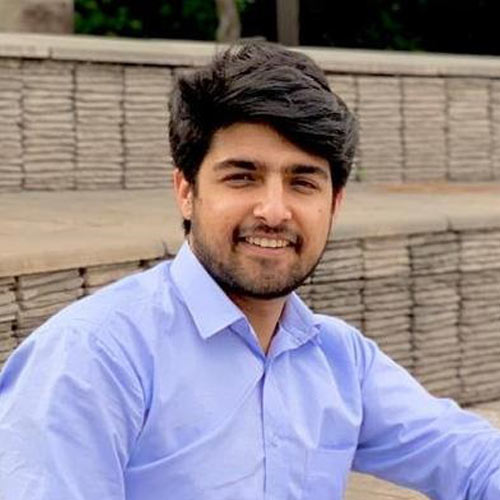
- January 18, 2021
- @admin
- 0
- 18th January 2021
- Irtaza Muhammad
The free world celebrated New Year’s eve on 31st December 2019 keeping a hope that the next year might bring peace and progress to their lives but the scenario was quite different in the world’s highest militarized zone known as “Kashmir”. People of Kashmir while living under a long strict curfew were still bewildered and frustrated about the Indian Government’s move of revoking the special status of Kashmir. Kashmiri people stepped into 2020 amid tensions and anxiety that they had been facing since the past five months.
By the start of 2020, the whole world had eyes focused on the updates about the newly discovered Corona Virus in China and soon after the World Health Organization declared it a pandemic, all countries rushed to build their diagnostic capacity and educate their people about precautions to be taken against it. Massive public awareness campaigns were organized for the safety of humans across the globe, except in Kashmir. Kashmiri people who were already witnessing severe social and economic crises due to communication and information blackout post-August 5, had no clue of a virus that had been declared a pandemic. The lack of information vital for the health and safety of people lead to a severe outbreak of Covid-19 in the Valley with thousands of people suffering from it. People already agonized over the curfew were put under a double whammy through lockdown. Mental Health workers were of the opinion that people are witnessing an alarming increase in the instances of anxiety disorders, depression and psychological disorders. The outbreak of Covid-19 also exposed the unsatisfactory health facilities in the Valley.
Economic Catastrophe

The year 2020 is considered the worst in the contemporary history of the Indian Occupied Kashmir in terms of economy. People of Kashmir perceived a systematic approach taken by the Indian Government to cripple Kashmir’s Economy and make its people dependent on New Delhi. Due to prolonged curfew and restrictions on all forms of communication, Kashmir’s economy faced huge losses leading to prevalent job cuts that led to a spike in the unemployment ratio from 15 to 22 percent. Apple farming industry which is considered the spine of Kashmir’s economy with almost 3.5 million people dependent on it recieved the biggest blow among all sectors. Farmers were unable to find workers and traders couldn’t get access to Kashmir because of a strict curfew. Similarly, tourism and handicrafts industry suffered huge losses as no tourists came to see the beauty of the Kashmir Valley during those catastrophic times. Kashmir Chamber of Commerce and Industry released a Preliminary Economic Assessment Report which estimated the economic loss to be around 17,818,18 crores (INR). Another report released by one of the leading trade bodies, Kashmir Economic Alliance states that the economy of Kashmir suffered a loss of 8416.2 crores in just two months of Covid-19 pandemic lockdown. The year 2020 brought an unprecedented wave of chaos in the economic sector that has further fueled acrimony in the territory.
Shrinking space for media

Indian Government introduced the Revised Media Policy following the abrogation of Article 370 and 35A. The new media policy gave authority to local government officials to declare any news or social media post as fake or anti-national.Several local and independent journalists were summoned and harassed by police and investigating agencies. One of the leading photojournalist Masrat Zahra was summoned to the police station and charged under the“Unlawful Activities Prevention Act” (UAPA) for one of her alleged anti-national posts on social media. Many other prominent journalists including Gowhar Geelani, Peerzada Ashiq complained of pressure and harassment for depicting the true image of the living conditions in the Kashmir Valley. Another leading journalist Qazi Shibli, the editor of “The Kashmiriyat”, detained in Uttar Pradesh’s Bareilly Jail, under the draconian Public Safety Act, was released on April 13, 2020 after nine months.
On 18th October 2020; Law Enforcement agencies sealed the office of a renowned daily English newspaper “Kashmir Times” causing outrage among local journalists in Kashmir. Journalists while protesting against this move termed it regulating reporting in the Valley and called it vendetta for speaking out the truth. Fahad Shah, Editor in Chief of “The Kashmir Walla” expressed the fear and coercion faced by the journalist community through a tweet that goes “Media in Kashmir has been facing the most difficult situation post-August 2019, and yet a few of us continue to fight it. In return, govt uses media policy, jails, summons, terror cases and intimidation to stop the free press. It is a daily battle to sustain freedom of the press in Kashmir”.
As the anti-India sentiments run high in the Kashmir Valley, 2020 saw a surge in harassment of journalists and the freedom of press was curtailed in Kashmir.
Upswing in violence

The whole world got engulfed by the Covid-19 pandemic by the mid of 2020 and the United Nations Secretary-General Antonio Guterres called for a global ceasefire. Despite this humanitarian appeal, the incidents of violence and atrocities raised in Kashmir.A report was released by the Legal Forum for Oppressed Voices of Kashmir which states that a total of 474 people were killed in Jammu and Kashmir, including 232 suspected militants and 177 Indian troops from January 1st to December 30th, 2020.
65 civilians were killed extra-judicially in fake encounters that led to indignation among people locally and internationally.2020 saw an increase in the destruction of civilian properties during encounters. At least 657 civilian houses were vandalized and destroyed by the Indian Security forces in the Kashmir Valley.
BJP lost DDC Elections in Muslim majority areas

Gupkar Alliance was formed by seven mainstream (pro-India) political parties to strive for the restoration of Article 370 and 35A in Kashmir headed by Farooq Abdullah. Gupkar Declaration II was signed on 22nd August, 2020 by seven political parties, including National Conference, People’s Democratic Party, Communist Party of India (M), Jammu and Kashmir People’s Conference, Awami National Conference, Indian National Congress and JKPM.
District Development Council elections were held in eight phases from November 28 to December 19th. People’s Alliance for Gupkar Declaration got the majority by winning 110 seats out of 280. The poll results clearly showed that BJP could secure only six districts in Jammu and none in the Kashmir Valley. Independent candidates won 50 seats, Congress 26, Apni Party 12, People’s Democratic Front and National Panthers Party two each and BSP one seat.
Former Chief Minister Omar Abdullah alleged that the Jammu Kashmir authorities are pressurizing the independent candidates to join BJP.
DDC polls also showed a decline in the vote bank of BJP as compared to the last Assembly elections in 2014, despite full support from the central government machinery.
Unprecedented skirmishes along LoC

People living along the LoC witnessed an extraordinary surge in ceasefire violations throughout the year 2020. On 11th and 12th April, 2020; the Indian Army, making a new move, used Bofors (Long Range Artillery) in Kashmir that led to fear and chaos among people living along the line.Amid rising tensions between India and Pakistan after August 5, no sector on LoC has remained safe from cross-border skirmishes leading to the deaths of hundreds of people.
An unusual incident occurred on 18th December.The Indian Army specifically targeted a United Nations vehicle carrying two officers of the United Nations Military Observer Group in India and Pakistan across the Line of Control. The UN vehicle was damaged but the officers remained unhurt. Pakistan’s Foreign Office strongly condemned the act, further adding that more than three thousand ceasefire line violations by the Indian Army have led to the death of 27 people and serious injuries to 249 civilians in the year 2020.
The Revival of Fake Encounters

2020 saw a revival of fake encounters in the Kashmir Valley. Three youngsters were abducted by a captain of the Indian Army on 17th July and taken to a storehouse in Amshipora where they were killed in a staged fake encounter. The youngsters belonged to Rajouri and had come to Shopian in search of a livelihood. Jammu Kashmir police officials, after an initial investigation, accused that the incident took place because Captain Bhupinder wanted to grab the prize money sanctioned for militant kills. This incident resulted in outrage among people and they demanded justice. However, none of the accused army officials was arrested because the Armed Forces Special Powers Act provides immunity to the Indian Army and paramilitary forces deployed in Jammu and Kashmir from prosecution in the civilian courts.
On 29th December, the Indian forces killed three young Kashmiri men claiming that they were supporters of militants but their families claim they were innocent. The families of three youngsters Zubair, 25; Ather, 16 and Aijaz, 22, protested against the extrajudicial killings of their sons in front of the Police Headquarters in Srinagar. They demanded the return of dead bodies of their sons who were buried by the Indian Army in the outskirts of Sonmarg in a secret graveyard. The burial of militants in this secret graveyard has become a common practice by the Indian Forces in order to avoid large crowds that gather at the funeral of militants. As the people protested against this inhuman act, a hashtag “return the bodies” trended on Twitter. Extrajudicial killings have been taking place in the Kashmir Valley for two decades now with no prosecution ever done. The Indian Armed forces enjoy impunity to kill common people and label them as militants in Kashmir, without any fear of facing prosecution.
The beginning of settler colonialism

Problems faced by the people of Kashmir are countless. The most crucial among them is the fear of settler-colonialism which is turning into reality. Thousands of outsiders were granted domicile certificates raising fears of the beginning of demographic changes in Kashmir. As the Indian Government has eased rules for its military to acquire land,the security forces can now point to any area in Kashmir and acquire it without getting a “no objection certificate” -NOC from the region’s home department.
The year 2020 has changed the ground realities of Kashmir but there is no end to the atrocities faced by its people. After revoking the special status of Kashmir, India has now unleashed a series of measures to permanently change its core identity and demographic features which might fuel more resentment among the oppressed people of Kashmir.

Irtaza Muhammad
The writer is a freelance contributor, associated with the Centre for Peace, Development and Reforms (CPDR).
He can be reached at irtizamuhammad23@gmail.com

















